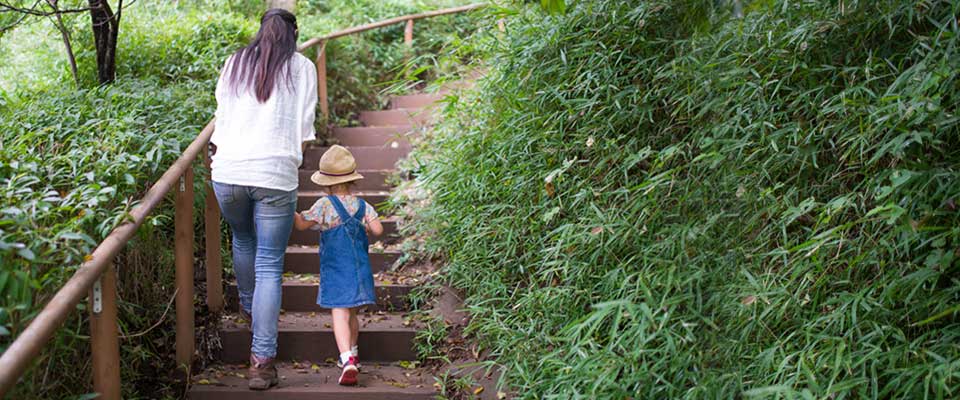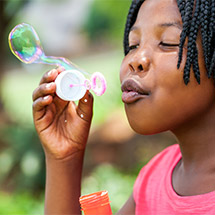What is ARC Treatment Like?
There are many different kinds of providers (someone who is supporting you, like a therapist, counselor, mentor, or case manager, to name a few) and many different environments – such as outpatient centers, schools, residential programs, or your home or community – where you might be working with someone who has been trained in ARC. Because the type of provider and the type of setting may vary, there is no one way to describe what ARC-based treatment looks like. Instead, it may be more helpful to learn about what kinds of things you might be working on.
ARC-based providers try to target the following:
- Safe and supportive systems of care: A “system of care” may be your parents, foster parents, or other relatives who you live with; or may be the adults in the system you are living or spending time in (like milieu counselors, teachers, or after-school providers). ARC-trained team members believe that young people (children and adolescents) will do best if they are surrounded by people who are able to manage their own feelings and experiences; who are interested and responsive to the young people they care for; who know how to build safe and supportive environments; and who can make choices that help you manage your own behavior in ways that feel helpful. An ARC-based provider might work with you to build a better relationship with the adults in your life, or might work directly with the adults to help them build a stronger, safer relationship with you.
- Your ability to recognize, understand, and do something about your feelings, thoughts, and behaviors: Many people who have experienced overwhelming stress – particularly when it has happened early in life, and lasted over long periods of time – struggle with managing and understanding their thoughts, feelings, body sensations, and behaviors. Overwhelming feelings may be channeled into unhealthy behaviors, discarded, or ignored until they explode. An ARC-trained provider will try to support you in recognizing the range of feelings and other internal experiences you have (what you think, what you feel in your body, what you do); where these feelings and experiences come from; and to find ways to actively cope with them, rather than ignore, react to, or feel overwhelmed by them.
- How you feel about yourself: There are many things that shape how we understand ourselves, our beliefs, what we feel good about, and what we imagine ourselves doing in the future, and overwhelming stress and early separations can have a strong impact on self and identity. ARC-trained providers will want to support you in exploring who you are – the things you are curious about; the experiences that have contributed to your values, thoughts, and opinions; the different ways you might feel at different times; the things you are proud of or want to explore; and the future you would like to build.
- The ways you act on your world: Strong feelings – especially those that are sudden and unexpected – can get in the way of young people and adults making good choices, or even recognizing opportunities to make a choice. This is even harder when someone has had many experiences in life in which he or she has felt helpless, like there is no choice. An ARC provider will try to support you in understanding the ways that your own strong feelings – often in response to situations that feel dangerous and lead to self-protective responses – may lead to you not recognizing opportunities to be active in your own life, and will work with you to develop the skills to make choices and to act on them, seeking and accepting support when needed. A primary goal of ARC treatment is for you to feel empowered in your world, and supported in that by the people around you.
- Your understanding of your life experiences. ARC was developed to support children, adolescents, and families who have experienced many different kinds of stress – such as family violence and abuse, neglect, having parents who struggle with mental health and substance abuse, exposure to violence in the community, and living in many different homes or with different caregivers. Many young people have experienced more than one kind of stress, and part of the work of becoming active and empowered in your life is learning to recognize the ways that these experiences have influenced you – both positively and negatively; processing the lasting thoughts, feelings, and memories that you carry; learning to recognize and honor the ways you have learned to survive and adapt to the world; and building a strong understanding of who you are including but going beyond your “trauma story.”
Youth Resource of the Month
Kids have a lot of different reactions to heading into the summer months – some kids are excited to be done with school, while others are anxious about changes in routine and about not seeing their friends every day. It is easy to start to feel isolated or lonely when everyone is doing something different over the summer. You may miss seeing the people you usually see every day – even if they are not people you typically see outside of school hours – and it may be harder to get together with friends. As the school year draws to a close, it’s a good time to think about how you can stay connected to the people who are most important to you, like your friends and those you lean on for support.



